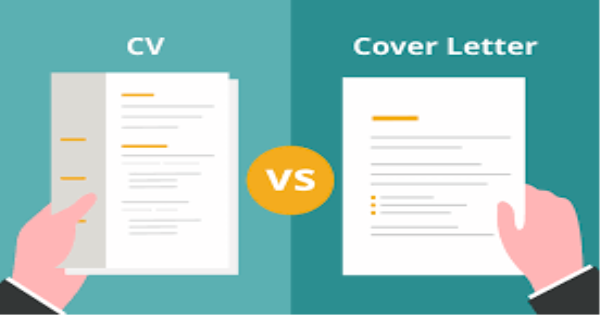Stress is a natural response to challenges, but excessive stress can harm both mental and physical health. Effective stress management helps maintain a balanced and fulfilling life. This article explores proven strategies to manage stress effectively.

Understanding Stress
What is Stress?
Stress is the body's response to pressure or demands. It can be caused by work, relationships, financial issues, or health concerns.
Types of Stress
Stress can be categorized into:
-
Acute Stress: Short-term stress that arises from immediate challenges.
-
Chronic Stress: Long-term stress that persists due to ongoing issues.
-
Episodic Acute Stress: Frequent acute stress episodes leading to exhaustion.
Effects of Stress
| Type of Effect | Symptoms |
|---|---|
| Physical | Headaches, fatigue, muscle tension, sleep disturbances |
| Emotional | Anxiety, depression, mood swings, irritability |
| Behavioral | Overeating, substance abuse, social withdrawal |
Effective Stress Management Strategies
1. Healthy Lifestyle Habits
A healthy lifestyle plays a crucial role in stress management. Incorporating regular exercise, a balanced diet, and quality sleep can significantly reduce stress levels and improve overall well-being.
Exercise Regularly
-
Engaging in physical activities such as jogging, swimming, and dancing helps in the release of endorphins, which act as natural stress relievers.
-
Strength training and yoga can enhance both physical and mental resilience against stress.
-
Regular exercise also improves sleep patterns and reduces symptoms of anxiety and depression.
Maintain a Balanced Diet
-
Consuming nutritious foods supports the body's ability to manage stress effectively.
-
Avoid excessive caffeine, alcohol, and processed foods as they can increase anxiety levels.
-
Incorporate whole grains, fresh fruits, vegetables, and lean proteins into your meals for sustained energy levels and emotional stability.
Ensure Quality Sleep
-
Sleep deprivation exacerbates stress, leading to mood swings and decreased cognitive function.
-
Aim for 7-9 hours of uninterrupted sleep per night to enhance mental clarity and relaxation.
-
Create a bedtime routine by limiting screen exposure before sleep and maintaining a comfortable sleep environment.
2. Mindfulness and Relaxation Techniques
Practicing mindfulness and relaxation techniques can significantly reduce stress and improve focus.
Meditation and Deep Breathing
-
Mindfulness meditation helps in calming the mind and reducing anxiety levels.
-
Deep breathing exercises such as the 4-7-8 technique or diaphragmatic breathing aid in stress reduction by lowering heart rate and blood pressure.
Progressive Muscle Relaxation (PMR)
-
This technique involves tensing and relaxing different muscle groups to release physical tension caused by stress.
-
It can be practiced before bedtime to improve sleep quality and overall relaxation.
Guided Imagery
-
Visualizing a peaceful and positive environment can help shift focus away from stressors.
-
Listening to guided meditation recordings can enhance relaxation and mental clarity.
3. Time Management Skills
Efficient time management can alleviate the feeling of being overwhelmed and improve productivity.
Prioritize Tasks
-
Use the Eisenhower Matrix to categorize tasks based on urgency and importance.
-
Avoid multitasking and focus on completing one task at a time for improved efficiency.
Break Tasks into Smaller Steps
-
Dividing large projects into manageable steps can make tasks feel less daunting.
-
Setting realistic deadlines can reduce unnecessary pressure and enhance productivity.
Avoid Procrastination
-
Implement the Pomodoro technique by working in 25-minute focused intervals with short breaks.
-
Establishing a daily to-do list can create structure and prevent last-minute stress.
4. Social Support and Communication
Having a strong support system can significantly reduce stress levels and provide emotional stability.
Talk to Someone You Trust
-
Expressing feelings to a close friend, family member, or therapist can provide relief and perspective on stressful situations.
Join Support Groups
-
Participating in community or online support groups can foster a sense of belonging and shared experiences.
Set Boundaries
-
Learning to say “no” to overwhelming commitments is essential for reducing unnecessary stress.
-
Setting realistic expectations for yourself and others can create a more balanced lifestyle.
5. Hobbies and Recreational Activities
Engaging in enjoyable activities can serve as an effective stress relief method.
Engage in Creative Activities
-
Creative outlets such as painting, music, or writing can provide emotional release and relaxation.
-
Trying new hobbies can boost self-esteem and provide a sense of accomplishment.
Spend Time in Nature
-
Exposure to green spaces and fresh air has been proven to reduce cortisol levels and enhance mental well-being.
-
Activities like hiking, gardening, or simply taking a walk in a park can improve overall mood and relaxation.
6. Professional Help When Needed
Seeking professional assistance is crucial for managing chronic or severe stress.
Therapy and Counseling
-
Cognitive Behavioral Therapy (CBT) is an effective approach for changing negative thought patterns related to stress.
-
Professional counseling can provide coping strategies and emotional support.
Medical Consultation
-
If stress starts to affect physical health, consulting a healthcare provider can help in identifying underlying issues.
-
In some cases, medication may be prescribed to manage severe anxiety or depression.
Samia Farooq
Top Contributors
Related Articles
Why Your First Job Doesn’t Define Your Career – Key Factors for Long-Term Success
- Ilmkidunya
- 14/Apr/2025








.gif)


































